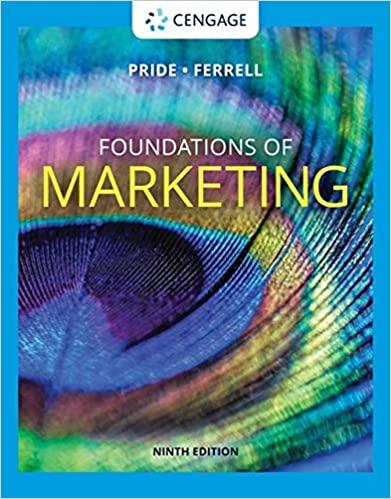International clothier Gap, Inc. is proud of its Code of Business Conduct that urges all those associated
Question:
International clothier Gap, Inc. is proud of its Code of Business Conduct that urges all those associated with the company to participate in "Doing the Right Thing." The business, founded in 1969, strivesaccording to its Codeto adhere to the principle of "conducting business in a responsible, honest and ethical manner." In the situations described below, it becomes clear that what a company espouses and what it achieves might not always align in the idealized struggle to promote a responsible and ethical work environment.
Gap, Inc.'s Code of Business Conduct encourages employees to ask themselves the following questions:
Is this the right thing to do?
Is this legal?
Is this permitted under our Code of Business Conduct?
Would I want to see this reported in the media?
Although the tenets of the Code align well with an ethical and law-abiding corporate image, there are reports that the company was not always the most socially responsible.
Review this excerpt, dated September 25, 2007, from a young woman in El Salvador, which was published on the North American Congress on Latin America (NACLA) website. NACLA is an "independent, nonprofit organization founded in 1966 that works toward a world in which the nations and peoples of Latin America and the Caribbean are free from oppression and injustice."
My name is Judith Yanira Viera. I am from El Salvador and I am 18 years old. For over a year, I worked in the Taiwanese-owned Mandarin International maquiladora factory in the San Marcos Free Trade Zone, where we made shirts for the Gap, Eddie Bauer and J.C. Penney. From Monday to Thursday, our work shift went from seven in the morning until nine at night. On Fridays, we would work straight through the night, starting at 7 a.m. and working until 4 a.m. We would sleep overnight at the factory on the floor. The following day, we would work from 7 a.m. until 5 p.m. Despite these very long hours, the most I ever earned was 750 colones [about $43] per month. The supervisors often screamed at the women. They would hit us with the shirts and tell us to work faster. Even though we worked a 14-hour day, we were only permitted to go to the bathroom twice. It gets very hot in the plant, and the ventilation is poor. In the factory, there is no purified water, and the drinking water they give us is contaminated. There are many minorsgirls aged 14, 15 and 16who work in Mandarin. They would like to continue their studies, but the company does not permit it. They make the children work the same long shifts as the adult workers.
NACLA investigators added further details to Judith's story:
At the Mandarin plant, women like Judith are paid 18 cents for every Gap shirt they make. The Gap sells these shirts for $20 each in the United States. In other words, the women's wages amount to under 1% of the sale price of the shirts in the United States. Like a number of other U.S.-apparel firms, the Gap has established much-touted Corporate Codes of Conduct that require contract shops with whom it does business to abide by their countries' labor laws. Despite ample evidence of labor-rights violations by Mandarin, the Gap has consistently maintained that in its investigations, including several trips to visit the plant in El Salvador, it has found Mandarin to be a "model" operation that treated its workers with "decency and respect." Under intense pressure from the growing evidence of abuses at Mandarin, the Gap announced its decision to pull out of El Salvador in November (2007). The Gap continues to deny its role in the exploitation. Labor organizers, however, say the company's decision to pull out is tantamount to recognizing its incapacity to monitor its contractors and enforce its own codes of conduct. Organizers argue that the company should use its leverage as a major buyer to demand improved working conditions for maquiladora workers. By pulling out, they say, the Gap further punishes poor workers in developing countries.
A GAP IN THE CODE CASE QUESTIONS
(1) Read Gap, Inc.'s Code of Business Conduct at the US Securities and Exchange Commission (SEC) website: https://www.sec.gov/Archives/edgar/data/39911/000119312504053618/dex14.htm. What aspects of Gap's Code are violated by the above narratives?
(2) Charles Kernaghan, Executive Director of the National Labor Committee, first publicized Gap's use of sweatshop labor in El Salvador more than a decade before the 2007 reports featured above. Kernaghan has expressed wishes that the company (Gap) "would protect its workers as vigorously as it protects its trademark. The garment is protected but not the human being who made it. There are no laws to protect these human beings in the global economy." What steps could Gap take to bring its company values in line with the grim realities of some aspects of its global business?
(3) Gap has blamed unauthorized subcontractors hired by its vendors for some of the poor working conditions and child labor. Is this a valid excuse for Gap to avoid complicity in these issues?
(4) Do you agree with labor organizers that Gap's decision to simply leave El Salvador is a mistake and that it should stay and try and make conditions better? If it did stay, what strategies could it implement to manage the situation effectively and create value for the company?





